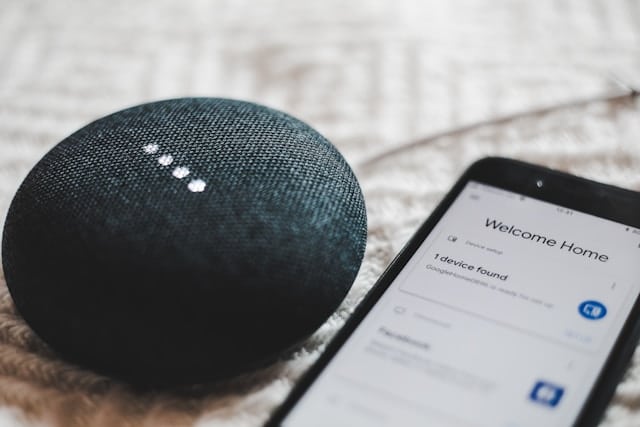How Can UK Energy Providers Use IoT for Smart Home Management Services?

In today’s digital age, where technology is at the forefront of our daily lives, the concept of the Internet of Things, or IoT, has rapidly gained attention. As energy companies in the UK search for innovative ways to use IoT for smart home management services, we delve into how these technologies can revolutionise the energy sector. This article will explore the potential of IoT in the context of smart energy management systems, the role of Home Energy Management Systems (HEMS), and the future market prospects of IoT-based solutions and applications.
IoT-Based Smart Energy Management Systems
The IoT has opened up new possibilities for creating smart energy management systems that are capable of providing real-time, data-driven insights about our power consumption. Let’s discuss further how IoT can be leveraged in this area.
Avez-vous vu cela : What Are the Challenges of Implementing AI-Based Personalization in UK Retail?
Internet of Things: A Technological Marvel
IoT refers to a network of interconnected devices that exchange data and interact with each other through the internet. It’s a game-changing technology that enables devices such as home appliances, security systems, and heating or cooling systems to communicate with each other and work together to provide a seamless, efficient, and comfortable living environment.
Smart Energy Management Systems
In the context of energy management, IoT offers a range of advantages. Smart energy management systems, powered by IoT technology, can learn the energy consumption patterns of a home and adapt to optimise energy use. These systems collect data from a variety of sources, including smart meters, home appliances, and weather forecasts, and use this data to make informed decisions about power consumption.
Avez-vous vu cela : How to Integrate Digital Accessibility Standards in UK E-commerce Website Design?
For example, a smart energy management system can adjust the temperature of a home based on the weather forecast and the occupants’ schedule, or it could turn off appliances when they’re not in use. This not only helps to reduce energy consumption and costs, but it also minimises the strain on the power grid and contributes to a more sustainable energy future.
Home Energy Management Systems (HEMS)
Home Energy Management Systems or HEMS, are a significant part of the IoT-based solutions provided by energy providers in the UK. They offer a comprehensive approach to managing home energy consumption. Let’s delve into the role and potential of HEMS in the energy sector.
Understanding HEMS
HEMS are smart systems that use IoT devices and technology to manage the energy consumption of a home. They offer a variety of services, including real-time monitoring of energy consumption, remote control of home appliances, and the ability to set energy consumption goals.
The Role of HEMS in Energy Management
HEMS play a crucial role in energy management by providing homeowners with insights into their energy consumption patterns. This information can be used to make smarter decisions about energy use, reduce energy waste, and save money on energy bills. Moreover, HEMS can also contribute to the wider energy market by reducing peak demand and stabilising the power grid.
Future Market Prospects of IoT-Based Solutions
The advent of IoT and its applications in the energy sector have opened up new opportunities for energy providers in the UK. Let’s explore the future market prospects of IoT-based solutions.
Growth in the IoT Market
The IoT market is set to experience significant growth in the coming years. According to a report by Markets and Markets, the global IoT market is expected to grow from $150.0 billion in 2019 to $243.3 billion by 2021, at a Compound Annual Growth Rate (CAGR) of 13.6% during the forecast period. This growth is driven by factors such as the increasing adoption of cloud platforms, the proliferation of IoT devices, and the need for improved operational efficiency.
Opportunities for Energy Providers
The growth of the IoT market presents numerous opportunities for energy providers. By offering IoT-based smart home management services, energy providers can differentiate themselves from the competition, attract new customers, and increase customer loyalty. Furthermore, these services can also provide energy providers with valuable data about their customers’ energy consumption patterns, which can be used to develop new products and services.
Harnessing the Power of IoT for Smart Home Management
With the advent of IoT, the UK energy sector has the potential to revolutionise the way homes are managed. But, how can energy providers effectively harness the power of IoT for smart home management?
IoT and Data Insights
One of the most significant benefits of IoT is its ability to generate vast amounts of data. This data can provide valuable insights into energy consumption patterns, which can be used to create more efficient and sustainable energy management systems.
IoT Solutions for Smart Homes
Energy providers can utilise IoT technology to offer a variety of smart home management services. These may include smart thermostats, smart lighting systems, smart appliances, and HEMS. These systems and devices can be controlled remotely through smartphone apps, providing homeowners with greater control over their energy consumption.
The Future of Energy Management
The use of IoT in energy management is set to transform the energy sector. In the future, we can expect to see more advanced IoT-based solutions that provide even greater control over energy consumption, such as smart grids and intelligent energy storage systems. These technologies will not only make our homes more comfortable and efficient but will also contribute to a more sustainable energy future.
The Intersection of IoT and Smart Meters in Energy Management
As an integral part of the IoT ecosystem, smart meters offer significant potential to improve the efficiency of energy consumption, a crucial aspect of smart home management. Let’s understand further how these devices fit into the energy management equation.
The Role of Smart Meters
Smart meters are IoT devices that monitor energy consumption in real-time. They not only provide accurate energy usage data but also transmit this information back to the energy provider. This two-way communication enables energy companies to monitor power consumption patterns and adapt their supply chain accordingly.
Impact of Smart Meters on Energy Management
Smart meters are transforming energy management by providing homeowners with detailed information about their energy consumption. These devices can identify which appliances consume the most power, which can help homeowners make informed decisions about their energy usage. Moreover, energy providers can use this data to optimise the supply chain, leading to improved operational efficiency and reduced energy wastage.
The Role of Cloud-Based IoT Solutions in Smart Energy Management
Cloud-based IoT solutions are the next big thing in the smart energy management system. They provide a scalable and secure platform for managing and analysing vast amounts of data generated by IoT devices in real time. Dive in to explore the potential of these solutions in energy management.
Understanding Cloud-Based IoT Solutions
Cloud-based IoT solutions involve storing and processing data generated by IoT devices on the internet, rather than on local servers or personal computers. This approach allows for greater scalability, faster data processing, and lower costs.
Cloud-Based IoT Solutions in Energy Management
Cloud-based IoT solutions can provide real-time insights into energy consumption, helping homeowners and energy providers make informed decisions. They can identify patterns in energy usage, predict future energy needs, and provide recommendations for energy conservation. Furthermore, they can enhance the functionality of smart home devices, enabling features like remote access and automation, which can lead to significant energy savings.
Conclusion
The advent of IoT has brought forth a revolution in the way we manage our homes, particularly in terms of energy consumption. IoT devices such as smart meters and HEMS are reshaping the energy landscape by providing rich, real-time data on power consumption, while cloud-based IoT solutions are offering a robust platform to harness this data for greater efficiency and sustainability.
The UK energy providers, by embracing IoT-based smart home management services, are not only differentiating themselves in a competitive market but also paving the way towards a more sustainable energy future. As technology continues to advance, we can expect to see even more innovative IoT solutions that will further push the boundaries of smart home energy management.
